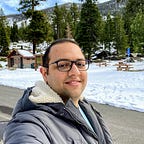Data Ownership
I have no experience in patenting, but I have a bit of experience in copyrighting.
In the company I worked for, we had developed multiple libraries in Go to practice DRY. At the time, Go was a reasonably new language with very little support. When it came to copyright, we did research different copyright policies and decided on the MIT license. There are a lot of different general licenses that people use for software products. Our goal was to create something to empower users, and we focused on contributing to the community. In our case, we cared very little about how people were going to use it. MIT provided us with everything we wanted. We were not responsible for how users would use our software, and they were not limited to how they want to use it, modify it, or distribute it.
It is apparent that I barely have any experience in this matter. So here is my opinion on digital ownership.
One thing that did not sit well with me, was the fact that a piece of code cannot be copyrighted but if it is written in a book, it can. This does not make any sense to me. The same thing happens for algorithms and flowcharts. I think the scope of what can be copyrighted should be broader than “Product” but the term should be much more limited than what it currently is. I have the same issue with patents. Patents are limited to machinery, process, or a tangible product. I think the definition of product as a physical device is my main issue with the ownership systems.
Lastly, I think their lifespan is too long and it hurts everybody in the process. If a product makes people’s lives easier or helps them in any way, it should be in the public domain much sooner than 17 years.
